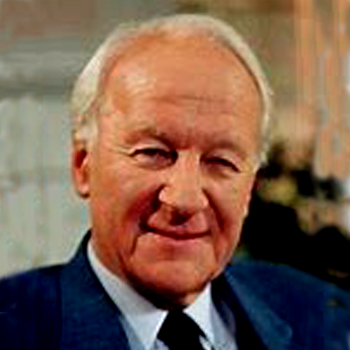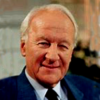Back to series
In response to this warning we need to go back to the authentic Jesus of the New Testament witness, whether this Jesus is acceptable to modern people or not. For there is only ‘one Lord, Jesus Christ’ (1 Cor. 8:6). And we have no liberty to compromise him. We need today more leaders like Athanasius in the fourth century who maintained the deity of Jesus and the doctrine of the Trinity, even when the whole of the rest of the church was determined to follow the heretic Arius. ‘It is his glory’, wrote C.S. Lewis in appreciation of Athanasius, ‘that he did not move with the times; it is his reward that he now remains when those times, as all times do, have moved away.’



Listen or Download the Audio Sermon
The Incomparable Christ
The beginning of this new millennium has provoked many conversations and discussions about Jesus Christ. But which Jesus are we talking about? There are hundreds of different Jesuses on offer in the world’s religious supermarkets. The tendency to misrepresent Jesus began early. Even during the middle of the first century AD, Paul had to complain to the Corinthians that ‘if some newcomer proclaims another Jesus,’ they ‘put up with it easily enough’ (2 Corinthians 11:4). Of course Christians in every century have rightly longed to present their Jesus to their contemporaries in a way that would resonate with them. Hence Jesus the perfect monk in sixth century monasticism, Jesus the feudal debtor in the middle ages, Jesus the humanitarian teacher in the Enlightenment, and Jesus the social liberator in 20th century Latin America.
But H.J. Cadbury, Harvard scholar, warned us against domesticating Jesus in his book The Peril of Modernizing Jesus (1937). Like the soldiers who stripped Jesus of his clothes and put on him one of their own military cloaks, so we tend to put on Jesus ‘our kind of clothes.’...
In response to this warning we need to go back to the authentic Jesus of the New Testament witness, whether this Jesus is acceptable to modern people or not. For there is only ‘one Lord, Jesus Christ’ (1 Cor. 8:6). And we have no liberty to compromise him. We need today more leaders like Athanasius in the fourth century who maintained the deity of Jesus and the doctrine of the Trinity, even when the whole of the rest of the church was determined to follow the heretic Arius. ‘It is his glory’, wrote C.S. Lewis in appreciation of Athanasius, ‘that he did not move with the times; it is his reward that he now remains when those times, as all times do, have moved away.’
So this is our dilemma. How can we be loyal to the authentic Jesus and simultaneously present him relevantly to our contemporaries? It is good to present Jesus in the best possible light, so as to commend him to the world. But it is not good, in order to do so, to eliminate from the portrait everything which might offend, including the offence of the cross. There is always a price to pay for this kind of feeble-minded accommodation. Jesus is wrenched out of his original context. He becomes manipulated and domesticated, and what is then presented to the world is an anachronism, even a caricature.
How can we avoid making this mistake ourselves? How can we present Jesus Christ to the world in a way that is simultaneously authentic and relevant? A double discipline seems to be needed, negative and positive. The negative is to rid our minds of all preconceptions and prejudices, and resolutely to renounce any attempt to force Jesus into our pre-determined mould. In other words we must repent of Christian ‘procrusteanism’. Procrustes, in Greek mythology, was a brutal robber who compelled his victims to fit the dimensions of his iron bed. If they were too short, he stretched them. If they were too long, he chopped off their feet. The Christian Procrustes exhibits a similar inflexibility, forcing Jesus into his way of thinking and resorting to ruthless measures in order to secure his conformity. From Procrustes and all his disciples, good Lord deliver us!
The positive counterpart follows. We have to open our minds and hearts to whatever the biblical text gives us, and to listen to the witness of the whole New Testament to Christ.
This double discipline is never more necessary than in evangelism. For often it is not that people have rejected Christ, but that they have rejected a pseudoChrist. Dr. Peter Kuzmic, President of the Evangelical Theological Seminary in Osijek, Yugoslavia, has put it in this way:
We must renew the credibility of the Christian mission. Missions and evangelism are not primarily a
question of methodology, money, management and numbers, but rather a question of authenticity,
credibility and spiritual power.... In going out to evangelize in Yugoslavia, I frequently tell our seminary students
that our main task may be simply to ‘wash the face of Jesus’, for it has been dirtied and distorted by both the
compromises of institutional Christianity through the centuries and the antagonistic propaganda of atheistic
communism in recent decades.
So by close attention to the witness of the New Testament, and in the interest of authentic evangelism, hopefully our vision of Christ will continue to clarify. At all events, however blurred and distorted our image of him may still be now, we have been promised that, when Christ appears in glory, ‘we shall see him as he is’ (1 John 3:2), the authentic, the incomparable Christ.
NOTES
1 Quoted from an article, ‘A Credible Response to Secular Europe’ in the Evangelical Review of Theology, June 1994.

John R.W. Stott
PreacherJohn R.W. Stott, (1921 – 2011) is known worldwide as a preacher, evangelist and communicator of Scripture. For many years he served as Rector of All Souls Church in London, where he carried out an effective urban pastoral ministry. A leader among evangelicals in Britain, the United States and around the world, Stott was a principal framer of the landmark Lausanne Covenant (1974). His many books, including Why I Am a Christian and The Cross of Christ, have sold millions of copies around the world and in dozens of languages.

-
Recent Podcasts
Ralph Waldo Emerson’s Philosophy and Influence
by David George Moore on July 26, 2024Ralph Waldo Emerson was a gifted nineteenth century...Read More
-
The Side B Stories – Nate Sala’s Story
by Jana Harmon, Nate Sala on July 19, 2024
-
Terrorism Through the Eyes of Faith
by Dennis Hollinger on July 12, 2024
-
Recent Publications
Hasn’t Science Proven That Belief in God Is an Outdated Superstition?
by Sharon Dirckx on July 1, 2024Many assume that scientific practice and belief in...Read More
-
Has the Bible Been Corrupted as Some Muslims Claim?
by Andy Bannister on June 1, 2024
-
Seeing Jesus Through the Eyes of Women
by Rebecca McLaughlin on May 15, 2024
0
All Booked
0.00
All Booked
0.00
All Booked
22194
C.S. Lewis’s The Abolition of Man Live Online Small Group 8:00 PM ET
https://www.cslewisinstitute.org/?event=c-s-lewiss-the-abolition-of-man-study-course&event_date=2024-10-02®=1
https://www.paypal.com/cgi-bin/webscr
2024-10-02

Next coming event
Days
Hours
Minutes
Seconds
C.S. Lewis’s The Abolition of Man Live Online Small Group 8:00 PM ET
On October 2, 2024 at 8:00 pmSpeakers

John R.W. Stott
Preacher
Team Members

John R.W. Stott
PreacherJohn R.W. Stott, (1921 – 2011) is known worldwide as a preacher, evangelist and communicator of Scripture. For many years he served as Rector of All Souls Church in London, where he carried out an effective urban pastoral ministry. A leader among evangelicals in Britain, the United States and around the world, Stott was a principal framer of the landmark Lausanne Covenant (1974). His many books, including Why I Am a Christian and The Cross of Christ, have sold millions of copies around the world and in dozens of languages.





